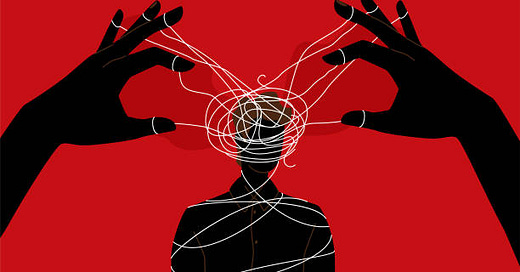Atlanta GA
FC 212 got a good response, and I am quite pleased that my efforts at penning (or is it keyboarding?) my posts Sunday on Sunday have been worth the time and effort involved. My current reader base is just under 1500, and I hope my readers will accept my request to help expand this base. If each reader persuades one more person to subscribe, that would make a difference. Of course, my posts are free to read, and I have no vested interest other than to share my thoughts with a larger readership.
There was a glitch of sorts, and some could not post a comment on the previous post. Sorry! That was resolved, and comments came in.
In FC 212, I alluded to crossing the path of a lawyer who became a good friend and guide until he received a premature call from his maker. His wife, Lynn, had this to say: “Our paths crossing has been one of the best moments in my life. I will forever thank Jim, who adored you both and created a bond that is beyond beautiful. I love you both [meaning my wife] as you are more than friends but rather family.”
Tarun who comments with unfailing regularity, has this to say: “I somehow always feel very positive about the word ‘path’. So, in my mind, ‘cross paths,’ even if not always pleasant, is always definitive. As opposed to ‘crossroad,’ which, to me, is a not a sure feeling and a difficult decision point. So rock bands have captured this difference well with two great tracks: ‘Pathway to Heaven’ and ‘Roadway to Hell.’”
Krupa Murthy, whose path I crossed eons ago and continue to cross intermittently, is very affectionate and is, therefore, very liberal in her praise of my post, not that I mind at all. 🙂 Here's what she says: “Prasanna, our paths cross every week (in a positive way!) where you have been consistently and ceremoniously offering the most awaited, differently flavoured and intellectually stimulating brew the 211th cup week after week!! Words fail me to tell you how beholden I am to you for this. May you be blessed for your unique writing skills. Continue to enjoy your vacation with Geetha and your family. Cheers!”
Capt. Sarma said: “As usual, you have lived up to your reputation as a master storyteller. I was fascinated by Filter Coffee 212. I have had instances when I had met someone out of the blue or accidentally met after two or three decades. I strongly feel that it was Providence who brought us together. We are grateful to Hari and Raju for bringing you into our life. Thank you for being part of our life.”
🤔 Are You Convinced?
I am likely not convinced that I will be able to convince you that the topic of this post would be convincing, yet I will try to convince you.
Let me start with the simple meaning of the word ‘convince’. It is to cause someone to believe firmly that something is true. So, you may allow someone to convince you, or you may allow yourself to be convinced without someone trying to. In either case, you look for certain facts or a narrative that influences you and leads you to believe. Hypothetical situations or speculations may not be as convincing as those that have a semblance of reality.
There is a process that you follow subconsciously before getting convinced. You are sceptical, to begin with. You look for a reliable source of information, an experience, or some evidence that convinces you. Predisposition is not an ideal starting point for getting convinced. If I suspect that my neighbour is involved in some undesirable activity and someone else expresses the same view, I am not convinced, but I allow that suspicion to become stronger.
Suspicion and conviction are contra-indicated. Conviction, as you all know, is the state of being convinced. If the police suspect a person, they would still need proof to secure a conviction. The judge must be convinced of culpability before convicting and sentencing a person. Interestingly, in many cases, the judge may convict a person but ask them to pay a fine and not send him to prison if he is convinced that it is undesirable or unwarranted.
Often in our lives, we find ourselves getting convinced or convincing others. When you get convinced, you do not have much to complain about if it turns out to be a misconception. But when you convince someone, you are also responsible for the consequences that follow. This is so true in the case of a wager. I may be convinced, based on my assessment, that I should bet on a horse to win, but I can only curse myself or my stars if that horse develops cold feet. If I convince my friend to place such a bet and it is lost, I feel a bit responsible, even if my friend may be nonchalant.
Getting convinced and convincing others comes with a responsibility. Diligence is the key in both cases. How reliable are the facts or the persons involved? If there is no empirical evidence, should one look for a set of reliable indicators? Is the after-effect of convincing or getting convinced temporary, long-lasting, or deleterious? There have been situations in the arranged marriage space where the groom or bride has been convinced to marry someone not necessarily of his or her choice, resulting in a failed marriage. The convinced will never forgive themselves for allowing someone to convince them and might despise those who convinced them.
I am not a doomsayer and do not characterise convincing as an undesirable act. My short point is that convincing comes with responsibility, and circumspection should precede getting convinced. My oft-repeated example is that of a person borrowing money. He may do his best to convince you to lend to him, but for you to get convinced is predicated on the length of the acquaintance, his sincerity, and your expectation of repayment.
When it comes to convincing arguments, one should be mindful that an argument is inherently two-sided, if not more. As a lawyer, I am tempted to illustrate this point by referring to a courtroom situation where the two contesting parties argue forcefully, and the judge has to weigh those arguments and decide which one he should accept as most plausible. I say plausible because one should not expect what the judge upholds to be the truth, as truth is buried somewhere in the two counter-narratives.
In some situations, we are convinced that another person has a problem, and we have none. I may convince myself I am good at acting, but my co-actor is not. This kind of convincing oneself could lead to living in denial. Let me share an anecdote, even if you are convinced you have read this before.
A man is convinced that his wife is going deaf, but she won't admit it. So he decides to test his theory once and for all.
While she's standing at the sink, he stands about six steps behind her and says, “What's for dinner, dear?”
When there's no answer, he steps a few steps closer and repeats the question.
Again there's no response, so he moves towards his wife's shoulder and asks: “What's for dinner, dear?”
At this, his wife turns around annoyed and says, “For the third time, it is Pasta”
Readers might have attended a show where a hypnotist performs his routine, and part of it involves convincing a member of the audience that he is something that he is not.
He may convince the person he is a dancer and make him dance, though the person has two left feet. In life, you come across people who are not hypnotists but have a hypnotic way of feeding you a spiel and convincing you to believe in or do something of their bidding. In my view, the guys who come closest to such a description are con artists who gain people’s confidence with their glib and oily tongue’’ (courtesy of The Bard).
Almost two years back, I posted FC 113 about con artists. I urge you to read it if you haven’t, using this link: 🔗Filter Coffee #112 - by M R Prasanna. In my view, con artists convince you to do their bidding. You may wince with regret later. Dear readers, I hope you appreciate that there is this and much more that can be said about convincing. Since I am in the USA, let me end with a joke that has local flavor (American English):
Pedro was a jury member in a homicide case involving a gangster mob. The mob approached him with threats and a bribe: “You make sure ` no death sentence. Just imprisonment is ok.”
Feeling threatened, Pedro agrees. The trial proceeds, and the jury is sequestered. Hours turn into days, then a week.
Finally, the jury returns with their decision: Life imprisonment.
The gang members are thrilled. The boss hands Pedro $10,000, and they praise him, “Great job, you've truly earned this. But what took so long? Was it tough to persuade the others?”
Pedro sighs and says, “You wouldn't believe it! Right from the start, they were all set on acquittal. It was a nightmare convincing them for a life imprisonment!”
Until next week, take care and convince yourself that you are feeling great! Don’t hesitate to share some of your experiences with convincing. Ciao.






The word 'convince' is very interestingly been conceived - the first part is 'con'' and second part is 'vince'. So it has the inherent risk built in the word structure - One could well Vince with pain and feel conned when your conviction bubble is burst!
It’s an extremely interesting topic and has a lot of relevance to the current era. Convincing has gained a new connotation thanks to social media. The old adage “Seeing is believing” is no longer existent and people are trying to convince each other by posting tons of videos and photographs on sharing platforms.
Now there are influencers who get paid millions of dollars just to convince their followers who blindly accept anything posted…remember the pied piper!
Be it religion, politics, sports or even movies convincing others is the name of the game so much so that we now have fact checks to prove the genuineness of the convincer. Probably the reason why CON is a part of the word convince!!